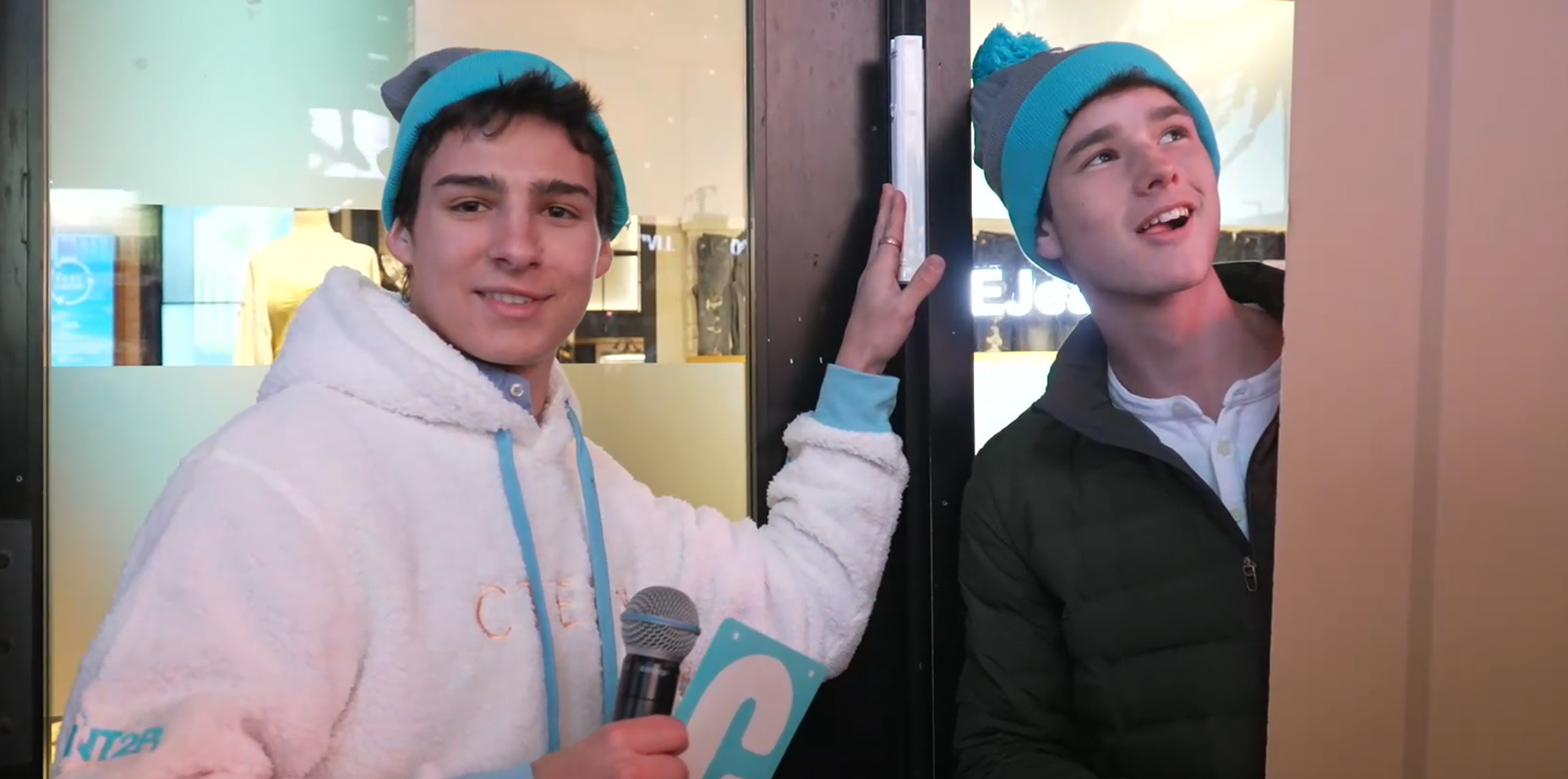(New York Jewish Week) — American Eagle Outfitters now has a mezuzah on the front door of its flagship Times Square location, courtesy of Chabad, the Hasidic outreach movement.
The parchment with Jewish holy text in an oblong metallic case, traditionally a marker of a Jewish home or establishment, was affixed on the apparel brand’s door as part of the recently concluded convention of CTeen, Chabad’s youth group. At a concert in Times Square on Saturday night, thousands of teens from more than 30 countries gathered to sing Jewish songs — and witness the mezuzah being hung.
Out of all the retailers in Times Square, how did Chabad choose American Eagle?
That question has proven surprisingly hard to answer, as representatives of neither Chabad nor American Eagle agreed to speak on the record about the relationship between the Hasidic movement and the apparel brand.
But a clue to the reason lies with American Eagle CEO Jay L. Schottenstein, a Jewish philanthropist whose family has donated tens of millions of dollars to a range of Jewish organizations. ArtScroll’s translations of the Talmud, for example, bear the name “Schottenstein,” and the family has given to a range of Jewish institutions in Columbus, Ohio, where the Schottenstein family is based. American Eagle’s revenue for fiscal year 2022 was projected at nearly $3.5 billion, according to Forbes.
Chabad is among the beneficiaries of the Jay and Jeanie Schottenstein Foundation, which gave more than $200,000 to the movement’s institutions in 2020, the most recent year for which tax documents are available. Since 2014, American Eagle has also given Chabad access to the retail giant’s gigantic advertising screens in Times Square.
Rabbi Aryeh Kaltman, a Chabad rabbi from Columbus, told the New York Jewish Week that American Eagle is “the most inclusive brand there is in America.”
“I salute them,” Kaltman said. “It meant so much to every teenager who was there. It was an expression of Jewish pride.”
Stefan Schiff, a senior and tennis star at Bexley High School in the Columbus area, was the conference attendee who placed the Jewish ritual object on the store’s doorpost.
“This is a big honor for me,” Schiff said in a statement. “I am proud to be a part of such a tremendous display of Jewish pride together with my Jewish brothers and sisters from around the world.”
Chabad said that the ritual object is “Times Square’s first-ever mezuzah,” a bold claim that is almost certainly inaccurate. The New York Jewish Week did not determine conclusively whether a mezuzah is, at present, affixed to any doors in one of the busiest public spaces of the most Jewish city in the country. But less than a decade ago, a building on 40th Street and Seventh Avenue was home to a synagogue, the Garment Center Congregation. That building’s address currently boasts the Margaritaville Resort Times Square. (The synagogue, incidentally, is suing the building’s developer).
Additionally, which set of blocks, exactly, counts as “Times Square” is up for debate, though an expansive definition proposed last year by New York City itself includes parts of the Garment District, which was once heavily Jewish. Those borders also include at least one synagogue.
Rabbi Mendy Kotlarsky, the Chabad director of outreach, told the New York Jewish Week that Chabad “sent out a couple of the guys to scout the area” to search for a mezuzah.
But Kotlarsky acknowledged that the claim might be debunked.
“We’re walking around Times Square, and in Duffy Square, and we didn’t see any,” he said. “Nobody ever claimed to have put up the first mezuzah. We are the first to claim it. If somebody came to me and said, “‘I put up the first mezuzah,’ I would say, ‘You’re right.’”
“That’s not what’s important to me,” Kotlarsky added. “What’s important was we were able to do that and the teens were able to connect with it.”
The event also took place at the end of a Shabbat that a small white supremacist group in Iowa had promoted as a “Day of Hate,” prompting police warnings. The day ended with no discernible uptick in antisemitic activity, both in New York and across the country.
“This day was designated by other people as the ‘Day of Hate,’” Kaltman said. “The best response to darkness is light and love.”
The New York Jewish Week brings you the stories behind the headlines, keeping you connected to Jewish life in New York. Help sustain the reporting you trust by donating today.





